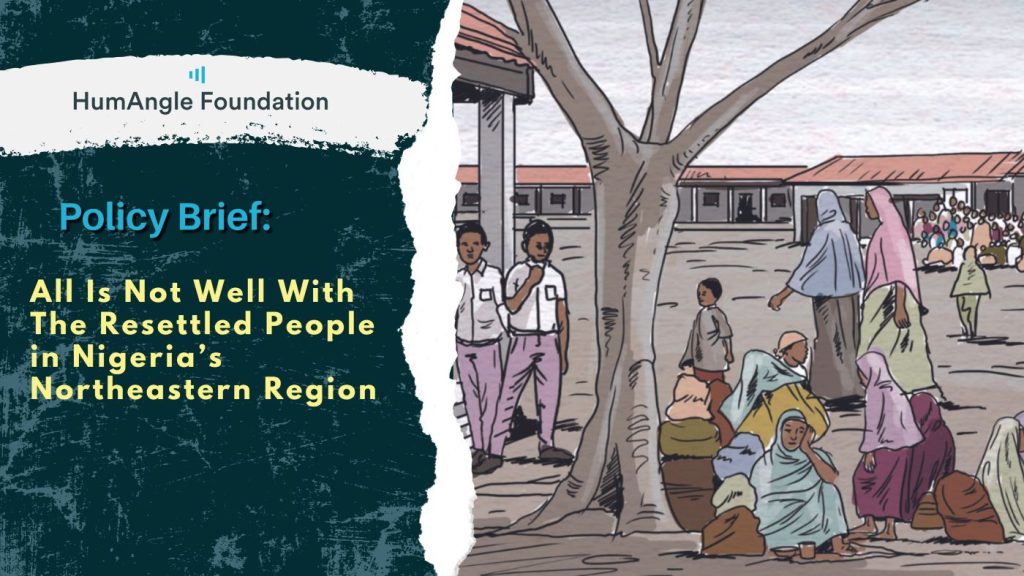What happened?
Sometime in 2021, the Borno state government made the decision to begin to resettle or relocate people who for nearly a decade have been internally displaced in the state by the Boko Haram insurgency. All official IDP camps in the state capital, Maiduguri, such as the Dalori camp were then shut down and the occupants moved to places such as Kirawa, Nguro Soye, and Pulka.
Though there were concerns that the move might usher in another kind of humanitarian crisis, it was executed. The IDPs were given foodstuff in bulk, money ranging from N50,000 to N100,000 depending on gender and whether or not one is the head of a household, and cooking utensils.
The resettlement relocations are in areas that had at some point been taken by Boko Haram as theirs and are only now starting to get populated with civilian populations. As a result, the villages are undeveloped, with little or no security, access to education, hospitals, and things as basic and necessary as water. HumAngle visited the locations in Nguro Soye and Kirawa and found that they were not only unsafe in these locations but also did not have access to basic things.

Why does it matter?
During our visit to the site in Nguro Soye, we found that there had been multiple confirmed cases of attacks on the people whenever they went into the surrounding areas in search of firewood, one man had been killed, and another man killed right there in the site in the middle of the night. We also found that they did not have access to potable water as some water points in the site had broken down.
More troubling was the revelation that many locales in Bama had begun to act as couriers for terror groups out of desperation and poverty. This is a very prominent and serious breakdown of law and trust in the state and efforts need to be made to stop it as soon as possible so that they do not lose faith in the authority of the state.

During our visit to Kirawa, we found that residents are crossing to Cameroon to access basic healthcare, education, and even security.
We found one clinic in Kirawa, an upgrade of what used to be a dispensary. The clinic has only two wards, with each ward having eight beds. The clinic only received supplies on a routine basis, not regularly. The clinic also does not have electricity. The staff say they have to use a torch to carry out surgical operations. There are also no midwives available to aid childbirths.
What can be done? The Kirawa clinic needs to be restocked and staffed with technical staff. Schools need to be built for the residents in both Nguro Soye and Kirawa, and the state needs to begin to look at non-kinetic and development-geared approaches to fighting the spread of radicalism and terrorism.
The development of the towns will improve the quality of life of the residents by making their lives easier and also providing employment opportunities for them. These will further deplete the ready fodder of vulnerable people available to extremist groups.




